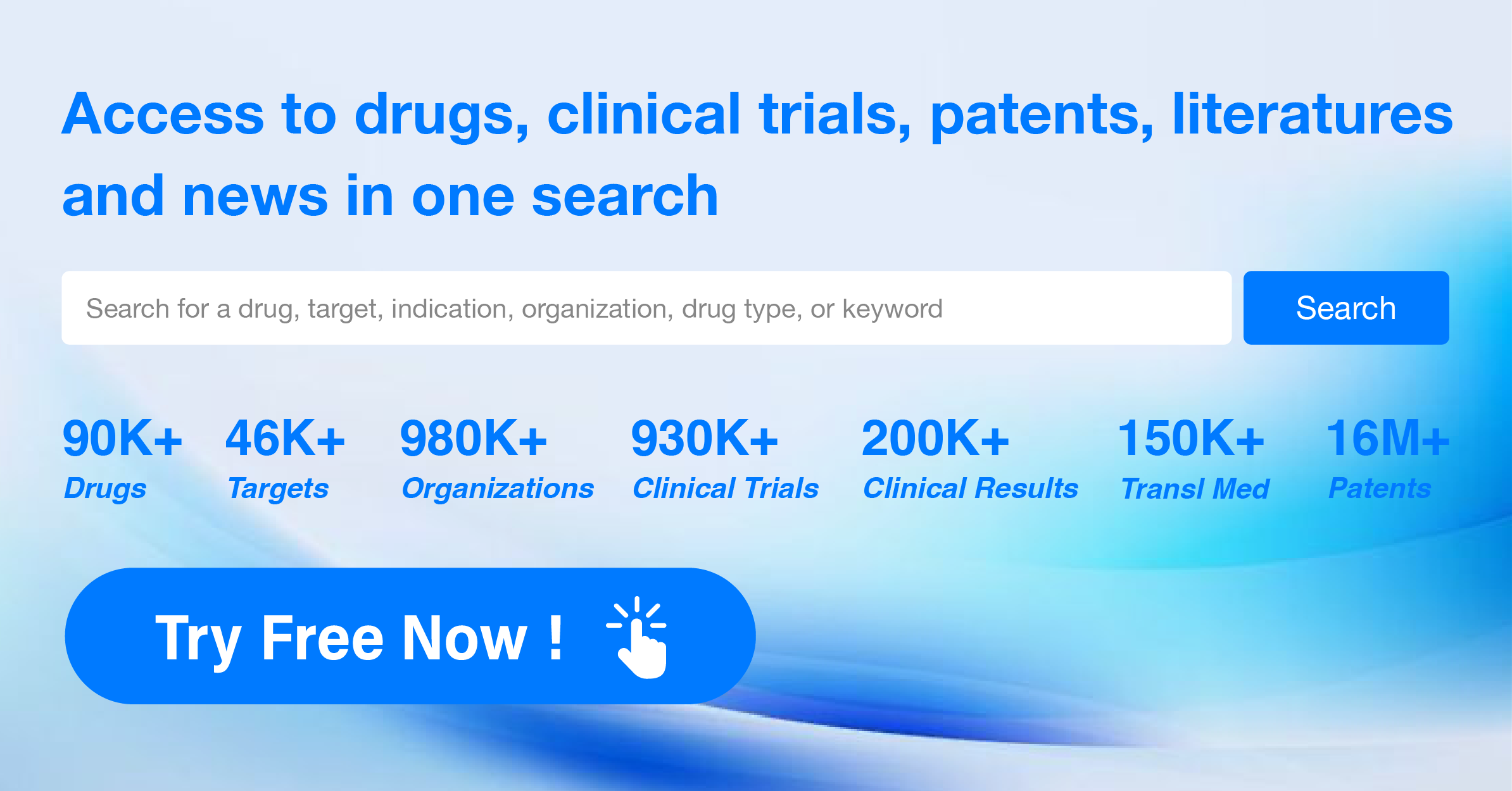Pharma Frontiers: Daily Digest of Global Pharmaceutical News – Aug 1
1.Roche's heavy-hitting dual-specificity antibody Vabysmo secures third indication approval from the European Union
On July 31, Roche announced that the European Commission (EC) has approved the dual-specificity antibody Vabysmo (faricimab) for the treatment of visual impairment caused by macular edema due to retinal vein occlusion (RVO). This marks the third indication for Vabysmo in the European Union, following its prior approvals for neovascular age-related macular degeneration (nAMD) and diabetic macular edema (DME). These three retinal diseases collectively affect nearly 80 million people worldwide and are among the leading causes of vision loss globally. The approval is based on positive outcomes from two global phase III clinical trials, BALATON and COMINO, which assessed the efficacy of Vabysmo in over 1,200 patients with macular edema due to branch and central retinal vein occlusion (BRVO and CRVO). The studies demonstrated that monthly treatment with Vabysmo offered early and sustained improvement in vision in patients with BRVO and CRVO, achieving the primary endpoint of non-inferior vision improvement at 24 weeks compared to aflibercept. Moreover, the data indicated that Vabysmo achieved rapid and significant reduction of retinal fluid. Long-term data revealed that nearly 60% of Vabysmo recipients in the BALATON study and nearly 48% in the COMINO study were able to extend their treatment intervals to three to four months. Existing treatments for RVO typically require administration every one to two months. In both studies, Vabysmo was well-tolerated, and its safety profile was consistent with previous research findings. Vabysmo is a dual-specificity antibody that targets and blocks two key pathogenic pathways—Angiopoietin-2 (Ang-2) and Vascular Endothelial Growth Factor-A (VEGF-A)—both of which can destabilize blood vessels, causing leakage, increased inflammation, and driving many retinal diseases that can lead to vision loss.
2.Johnson & Johnson's Daratumumab (Subcutaneous Injection) Quadruple Therapy Receives FDA Approval
On July 30th, Johnson & Johnson announced that the US FDA has approved DARZALEX FASPRO® (daratumumab and hyaluronidase-fihj) in combination with bortezomib, lenalidomide, and dexamethasone (D-VRd) for the treatment of newly diagnosed multiple myeloma (NDMM) patients eligible for autologous stem cell transplant (ASCT). This approval enables patients to receive this DARZALEX FASPRO®-based quadruple therapy regimen at initial diagnosis, offering a new treatment option which may significantly improve outcomes. DARZALEX FASPRO® was first approved by the FDA in May 2020 for the treatment of nine multiple myeloma indications, including four frontline therapies for newly diagnosed patients whether they are eligible for transplant or not. It is the only subcutaneous CD38-targeting antibody approved for the treatment of patients with multiple myeloma. The new indication approval is supported by the Phase III PERSEUS study data, which evaluated the efficacy of DARZALEX FASPRO® in a regimen that included D-VRd induction and consolidation therapy, compared to patients eligible for ASCT using bortezomib, lenalidomide, and dexamethasone (VRd) during the induction and consolidation phases. After consolidation therapy, patients received an experimental maintenance treatment, consisting of DARZALEX FASPRO combined with lenalidomide or lenalidomide alone. Results from the PERSEUS study show significant improvement in the primary endpoint of progression-free survival (PFS). Compared to VRd, D-VRd reduced the risk of disease progression or death by 60%. At the end of the consolidation phase, treatment with D-VRd induced and consolidated a deeper response: with minimal residual disease (MRD) negativity rates at 57.5% vs. 32.5%, and MRD negativity rates for patients achieving a complete response (CR) or better at 76.6% vs. 58.5% compared to VRd.
3.Vertex's Potential Blockbuster Drug Receives FDA Priority Review Status, A First in Over 20 Years!
On July 31st, Vertex Pharmaceuticals announced that the U.S. FDA has accepted its New Drug Application (NDA) for the investigational therapy, suzetrigine (VX-548). Suzetrigine is an oral selective NaV1.8 inhibitor designed to treat moderate to severe acute pain. The press release indicated that suzetrigine could potentially be the first new mechanism of action medication for the treatment of acute pain in more than two decades. The FDA has granted suzetrigine Priority Review designation, with an expected completion date for the review by January 30, 2025. Previously, suzetrigine had received FDA Fast Track and Breakthrough Therapy designations for the treatment of moderate to severe acute pain. The NDA for suzetrigine primarily relies on positive results from a pivotal Phase 3 clinical trial for the treatment of acute pain, reported by Vertex in January of this year. The analysis revealed that in the Phase 3 clinical trial conducted with patients undergoing abdominoplasty, suzetrigine met the primary endpoint where the total sum of the differences in pain intensity over 48 hours (SPID48) was significantly reduced compared to placebo, with an average difference of 48.4 (95% CI: 33.6, 63.1; P<0.0001). Additionally, scores on the Numeric Pain Rating Scale (NPRS) 48 hours post-surgery also significantly decreased compared to baseline. Similarly, in patients undergoing bunionectomy, the therapy also achieved the primary endpoint, with an SPID48 average difference of 29.3 (95% CI: 14.0, 44.6; P=0.0002).
4.Frontline Immunotherapy Significantly Extends Overall Survival in Advanced Cancer!
On July 31st, IMUNON announced positive top-line results from the Phase 2 OVATION 2 clinical trial of its investigational immunotherapy, IMNN-001, in treating patients with advanced ovarian cancer. The analysis revealed that when used as a frontline therapy in combination with standard treatments, IMNN-001 significantly improved overall survival (OS) and progression-free survival (PFS) for patients with advanced ovarian cancer compared to those receiving only standard treatments. Following these positive results, the company expects to initiate a registrational trial in the first quarter of 2025.
OVATION 2 is a randomized study designed to evaluate the efficacy and safety of IMNN-001 in combination with neoadjuvant and adjuvant chemotherapy (NACT), compared to NACT alone, in patients newly diagnosed with advanced epithelial ovarian cancer, fallopian tube cancer, or primary peritoneal cancer. Analysis for patients receiving the combination therapy of IMNN-001 and standard treatment showed that the median OS increased by 11.1 months compared to patients receiving standard treatment alone in the intention-to-treat (ITT) population, with a hazard ratio of 0.74. In both cohorts, about 90% of participants received at least 20% of the prescribed treatment per protocol. In this patient group, the median OS for the IMNN-001 cohort increased by 15.7 months, with a hazard ratio of 0.64, indicating a further extension in lifespan. Nearly 40% of participants received treatment with poly ADP-ribose polymerase (PARP) inhibitors, and the hazard ratio for these patients further decreased to 0.41. At the data cut-off, the median OS for the IMNN-001 treatment group had not yet been reached, while the median OS for the standard treatment group was 37.1 months. The primary endpoint analysis of PFS was consistent with the OS results, showing an improvement of three months in PFS for patients receiving the IMNN-001 combination therapy compared to those receiving standard treatment, with a hazard ratio of 0.79 in the ITT population.
5.Novo Nordisk Announces Phase 2b Clinical Results for the GLP-1 Receptor Agonist Liraglutide
On July 31, at the Alzheimer's Association International Conference (AAIC), impressive results from a Phase 2b clinical trial were reported. The trial, conducted by Novo Nordisk, demonstrated that the GLP-1 (glucagon-like peptide-1) receptor agonist liraglutide significantly reduced brain atrophy by nearly 50% in critical areas tied to memory, learning, language, and decision-making in patients with Alzheimer's disease. Additionally, the cognitive decline in the liraglutide group was 18% slower compared to the placebo group.
GLP-1 receptor agonists mimic the function of the naturally occurring hormone glucagon-like peptide, which is released after eating and plays roles in diabetes management, weight reduction, and lowering the risk of heart disease, stroke, and kidney disease. Research in Alzheimer's disease animal models has indicated that GLP-1 class drugs may possess neuroprotective properties, potentially reducing early amyloid accumulation, normalizing brain glucose processing, and improving memory and learning.
Currently, there are over 55 million people worldwide suffering from dementia, with Alzheimer's disease being the most common form, accounting for 60-70% of all cases. The reported ELAD trial is a randomized, double-blind, placebo-controlled study aimed at evaluating the effects of liraglutide in Alzheimer's disease. A total of 204 patients with mild Alzheimer's disease were enrolled and received either a daily 1.8 mg subcutaneous injection of liraglutide (n=102) or placebo (n=102). Prior to the start of the study, all participants underwent MRI scans to assess brain structure and volume, positron emission tomography (PET) scans for glucose metabolism, and detailed memory testing. These tests were repeated at the conclusion of the study, with periodic safety follow-ups.
6.Positive Results Published for mRNA Cancer Vaccine Combination Therapy BNT111
On July 31, BioNTech announced positive top-line data from the ongoing Phase 2 clinical trial of its mRNA cancer vaccine BNT111. The analysis indicated that the trial met its primary endpoint: BNT111 in combination with Regeneron’s PD-1 inhibitor Libtayo (cemiplimab) significantly improved the overall response rate (ORR) in patients with unresectable advanced melanoma. The company plans to continue the trial to further evaluate secondary endpoints, which are still immature.
The BNT111-01 trial, an open-label, randomized study, was designed to examine the efficacy and safety of BNT111 and cemiplimab, either as monotherapies or in combination, for the treatment of recurrent, unresectable Stage III and IV melanoma patients who are resistant to PD-1 or PD-L1 therapies. A total of 184 patients were enrolled and received treatment for up to 24 months. The analysis showed that the trial achieved its primary efficacy endpoint, demonstrating a statistically significant improvement in ORR for patients treated with the combination of BNT111 and cemiplimab, compared to a historical control group of similar patient profiles.
Both randomized monotherapy groups showed clinical activity, and the ORR for the cemiplimab monotherapy group was consistent with historical outcomes for patients previously treated with PD-1, PD-L1, or CTLA-4 targeted therapies. The combination therapy was well-tolerated and safe, aligning with results from previous clinical trials.
BNT111 is a ready-to-use therapeutic vaccine produced using the FixVac technology platform. It encodes four non-mutated tumor-associated antigens: NY-ESO-1, MAGE-A3, tyrosinase, and TPTE, which are expressed in over 90% of skin melanomas. In 2021, the U.S. FDA granted Fast Track designation to BNT111.
7.Boehringer Ingelheim Invests in a Precision Oncology Company in China
On July 30, Boehringer Ingelheim announced its investment in Synthetica Bio, aiming to accelerate the progression of Synthetica Bio’s oncolytic bacteria pipeline into clinical trials. This investment underscores Boehringer Ingelheim’s commitment to advancing a new generation of cancer therapies. Synthetica Bio, headquartered in Shenzhen, China, focuses on precisely regulating live bacterial genes through synthetic gene circuits to deliver therapeutic proteins more accurately to tumor cells. Synthetic biology enables the design of therapeutic bacteria that release their payloads only after recognizing specific tumor microenvironments. These bacteria grow within tumors and not outside them.
Last year, Boehringer Ingelheim enhanced its research and development pipeline by acquiring T3 Pharmaceuticals, a platform that delivers immune modulatory proteins to tumor cells and the tumor microenvironment. While immunotherapy has significantly transformed the cancer treatment landscape, only 15%-20% of cancer patients achieve long-term remission. Boehringer Ingelheim is dedicated to changing this scenario by making the benefits of immunotherapy available to more patients through its comprehensive pipeline. These therapies aim to boost the immune system and directly target tumor cells. The next-generation oncolytic bacteria therapy platform, integrated with other immunotherapies and targeted therapies, has the potential to further enhance the benefits for cancer patients.
How to obtain the latest research advancements in the field of biopharmaceuticals?
In the Synapse database, you can keep abreast of the latest research and development advances in drugs, targets, indications, organizations, etc., anywhere and anytime, on a daily or weekly basis. Click on the image below to embark on a brand new journey of drug discovery!




